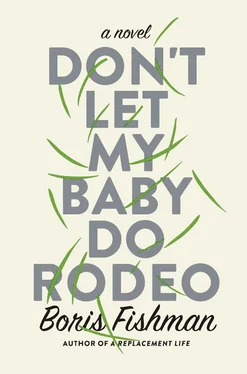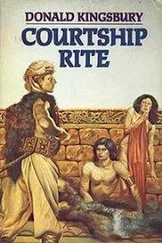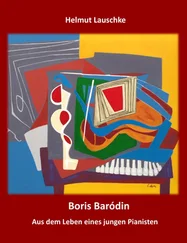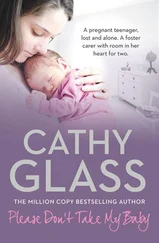She had to watch again — two gates opened, two horses emerged, and between them a steer. She couldn’t determine the purpose of the second rider, who veered away to allow the first to slide onto the animal and wrestle it to the ground until by some unknown metric the event was judged complete.
Maya looked over at Max. He was squinting down at the arena. “Doesn’t it hurt?” he said, meaning the steer.
“I don’t know, honey,” Maya said.
“I don’t like it,” Max said.
They stamped their feet in the cold. A fine film of dust settled over their jackets. The cold smell of hide and excrement mingled with the yeasty scent of pancakes being turned out in the main building. In a fenced-off area walled off from the chutes, the riders paced, or chatted, or rubbed their hands together in wild concentration. One was laid down on the dirt, his head on his saddle, and his cowboy hat over his eyes. Clean, unlined faces, a picture of vitality that did not translate to their bodies, which covered for injuries: they hobbled, waddled, and dragged. In the crow’s nest, the announcer God-blessed America, and took the crowd through two bars of “America the Beautiful.” “Ladies and gentlemen, this cowboy’s only pay this morning is your applause.” When a new event came up, he went through a careful explanation what was what — the rodeo was for experts and newcomers alike.
The events seemed organized by escalating violence. In the next, a horse rider cast a noose around the neck of a calf, the horse rearing up to keep it tight while the rider ran the length of the rope, slammed the calf on its side, and tied its feet up in the air. The sight felt lurid and Maya turned away. She found herself wishing that the animal would wriggle out and stomp the man who had thrown it to the ground. If Maya had never felt especially close to Max’s biological father, she had felt even less close to the animal that must have mangled his leg, even if it was responsible for a long process that ended in her acquisition of a son. But she felt a strong kinship with it now.
“Mama, let’s go,” Max said.
“Me too,” Maya said.
The ground cover had increased in the brief time they’d spent in the arena — the snow cracked underfoot. Northeast snow slicked up and slushed, slurping under the feet, but this was the snow of Kiev. Maya’s mother would finish her cigarette at the window and Maya her oatmeal at the table, they would take the rumbling elevator down, and crunch snow on the way to school for an endless fifteen minutes, a faint hint of smoke wreathing her mother’s speech.
Maya closed her eyes and breathed deeply, Max waiting patiently. When she opened them, she wished desperately to see her mother standing in front of her. Maya looked down at her son and said, “I need to go see my mother.” Did ships sail between continents any longer? No matter — she would go in the hold of a cargo freighter if she had to.
“Your grandmother,” Maya said. This grandmother Max barely knew. Maya experienced deeply the distance that her husband had been remarking on since the start of the trip, only he was measuring to New Jersey and she, now, much farther. His constant remarking on it had tuned it out in her mind, but now she understood very well what he was speaking about.
“I don’t remember the last time we built a snowman,” Maya said. “Come.”
Alex, who had remained at the wheel of the Escape, was summoned and asked to gather up snow, which he did with his feet, his hands in the pockets of his too-thin jacket, while Maya and Max sculpted. Soon, they each had three balls, round as ice-cream scoops. “You’re a natural, Maksik,” Maya said. Max clapped his gloves.
A passing elderly couple unlocked arms to insist on photographing the handsome family in front of their winter creation, and the South-Central Montana Rodeo Association scrapbook for the 2012 Last Gasp still holds, next to an image of Curtis Purnell riding the bull Fat Chance to the highest score of the day, an image of the Shulman-Rubins of Acrewood, New Jersey, next to a pair of snowmen.
“My feet are wet,” Alex said.
“Almost,” Maya said.
She knelt before the snowmen and in the belly of the first drew a large T, in the other an L. Alex, sunk in a sullen, sleep-deprived reverie, stared at Maya from the edge of the snow pile.
Max looked up at his mother. “What do the letters mean?”
“Max?” Maya said. “Your papa and I have something to tell you.”
Alex continued to watch his wife with a defeated hostility.
“Two things,” Maya said. “The first is that we love you very much. So, so much. You will always be our boy.”
“I know, silly goose,” Max said. He clapped his hands.
“Do you remember we were looking at a photo album at home once and you wanted to know why there were a hundred pictures of you at seven weeks but none from before?” Maya said. “And we said it was because cameras weren’t around yet, and we finally managed to get one when you got to be seven weeks?”
“I guess,” Max said cautiously.
“We weren’t telling the truth, honey,” Maya said. “Please don’t be upset with us. We want to tell you the truth. We want to tell you only the truth from now on.”
“Maya,” Alex whispered like a drugged person.
“The truth is that we are your second mommy and daddy,” Maya said. “Another mommy and daddy had you in their belly. Right where these letters are — it was you. But then, after you were born, they asked if your papa and I would take you. They really loved you but they couldn’t hold on to you — they were too young to take care of a baby. They loved you so much. And they wouldn’t give you away until they had found some people who they knew would love you even more.”
Max stared at her, trying to understand. “So I wasn’t in your belly?” he said, frowning.
“No, honey.”
“You’re not my mama and papa?”
“Yes, we are, darling, yes we are. I am your mama, and Papa’s your papa. But you’ve been blessed. Only special kids get this kind of blessing. You have four parents instead of two. You have an extra pair.”
Max blinked twice, and again. He was staring intently at her, his head pitched slightly forward. “But where are they now?”
“I don’t know, my love. We tried to find them, and couldn’t. That’s why we came here. But if we ever find them — I promise, I will ask them to come and spend time with you.”
“But why did they give me away?” Max said. He was trying not to cry and looked at his father. Alex gave his son a cracked smile, but didn’t move.
Maya tried to embrace Max, but he wriggled out and stared at her. He was little, so little. “They loved you so much that they gave you away because someone else could take better care of you than they could,” she said, her voice filling with tears. “That’s how much they loved you. I know it’s hard to understand — we’ll keep talking about it. But if they stayed in touch, seeing you would remind them of what they had done. It was too painful. But it wasn’t just them, honey — it was us, too. We wanted you to be ours so bad that we didn’t ask them to stay in touch. And they got what they wanted and we got what we wanted, and only you didn’t.”
“I don’t believe you!” Max shouted and ran off toward the car. Maya rose heavily and moved off after him, Alex watching them with a dull resignation. Max got to the car first and began to beat his fists on the locked door. At Maya’s touch on his shoulders, he spun out and ran to the other side of the car. Abruptly, he changed his mind and ran off from the vehicle, stamping the snow with quick little footsteps. He fell in the snow even before Maya caught up to him. He was trying to get up when she threw herself down over him and they both wept, Maya into Max’s shoulder, and Max into the snow. Alex stared at them from the side of the car like an intruder. Finally, he approached and knelt before them. Maya did not look at him. She heard only his voice, thin as a fallen-out hair on a pillow: “You’ll catch cold. Please.”
Читать дальше












